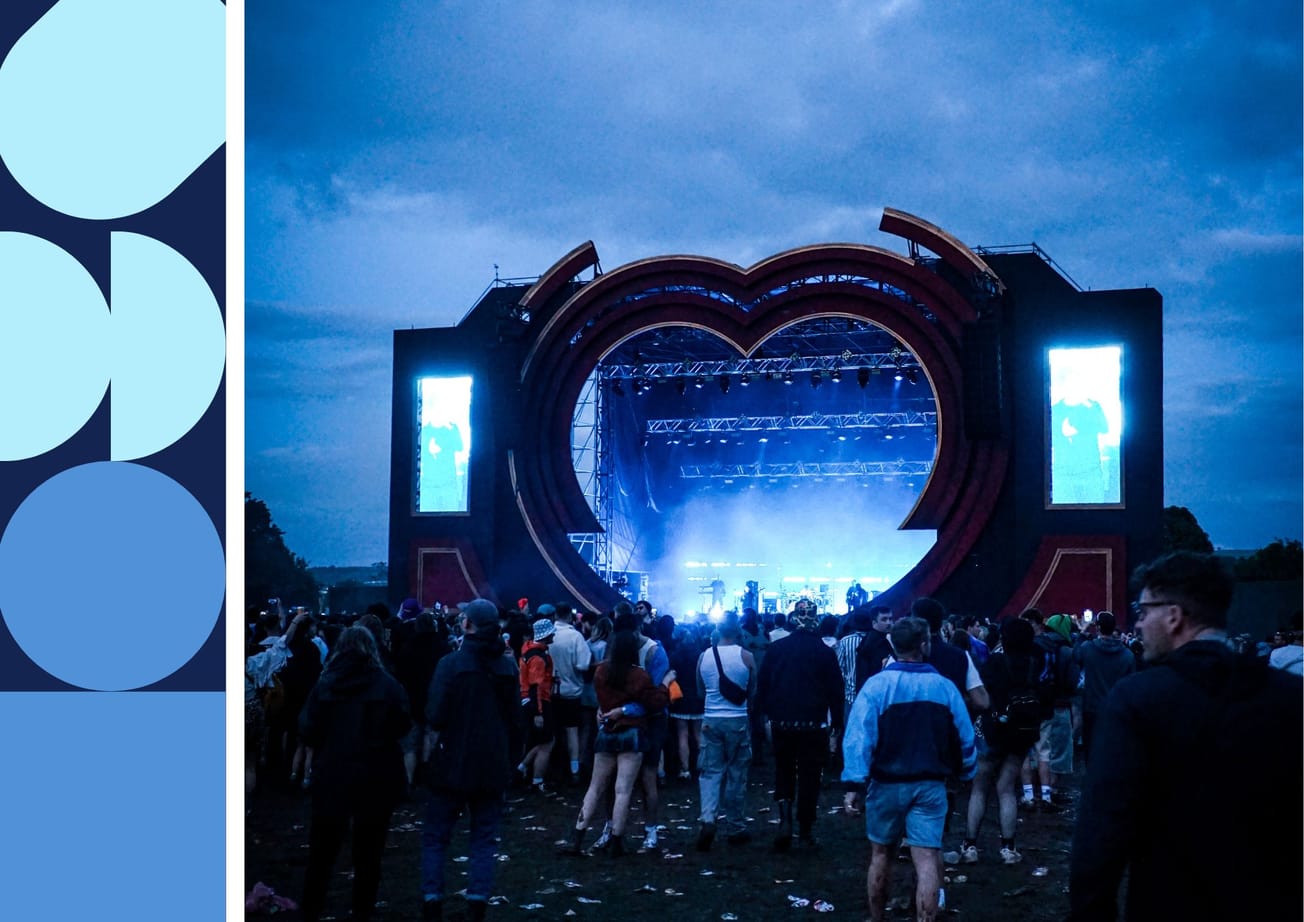By Jake Paterson, Music Editor
The Japanese House's new album, In The End It Always Does, has one of the most brilliant front covers I’ve seen in a long time. Seemingly drawn by hand, there’s a big blue circle with an arrow rotating clockwise, leaving us with the feeling that the theme of the record is painfully simple. No matter how far you’ve come or pushed yourself in either a positive or negative direction, things tend to right themselves, and you end up right where you started.
For Amber Bain, this was the breakdown of a long-term relationship. We all know intimately the loss that one feels when suddenly the intangible thing that is a connection or feeling of love within a relationship disappears. It’s a waking amnesia and leaves you to confront what was your everyday life and now nothing but memory. You’ll start again, find someone new, and in a few months or years find yourself looking through your camera roll in bed again thinking much the same.
In the end it always does.
Yet circles can be seen as symbols of rebirth and reinvention, and this is what Bain’s record touches on most – oscillating between moments of unwavering heaviness and joyful release. ‘This is going to be fun!’ Bain shouted before starting her set in the setting of the converted church that is the Trinity Centre – breathing new life into the extensive Japanese House discography before our eyes.
We were thrown into jubilant pop energy from the get go, bouncing along to ‘Sad To Breathe’ and ‘Touching Yourself’ whilst tracing the tracks’ funky undertones interweaving with ethereal guitar lines. The band sounded so unmistakably Dirty Hit, with words such as romantic, nostalgic, yearning, and desire filling my open notes page on my phone while the set unfolded.
Shifting into older territory, the indie anthem ‘Something Has to Change’ was followed by ‘Follow My Girl’ and worldwide hit ‘Saw You In a Dream’. These tracks are the epitome of dreamy hits to dance to in a crowd and cry over alone at home. Walking along that tightrope is inevitably liberating – allowing you to shake off whatever feels your memory brings to the forefront of your mind.
Though there slowly emerged a disconnect between an individual’s catharsis and Bain’s performance. Whilst most performers today use backing vocal tracks to some extent, Bain leaned quite heavily on relying on them and diminishing her live vocals behind the wash of sound. Whilst definitely not always the case – ‘Boyhood’ a genuine exception for the joy of its dreaminess – the real punch of tracks like ‘You Seemed So Happy’ were definitely lost.
Bain mentioned that she had intended to give a speech about the recent state of affairs surrounding being a trans person in the UK right now before performing ‘Boyhood’, but stopped herself. Whilst artists are by no means obliged to use their platform for expressing ideas, I couldn’t help but feel that the moment needed their honesty and articulate feelings. It was hard to gain access to their thoughts and energy.
The result was an occasional lull in certain tracks – ‘Friends’ felt like a wannabe glitter rainbow bop that didn’t quite land, and ‘Over there’ was genuinely captivating but all too brief. The powerful vulnerability in the quiet of ‘Chewing Cotton Wool’ was misplaced by the numerous false starts on ‘One for sorrow, two for Joni Jones’ and eventual clear weaknesses in Bain’s voice.
It was lucky, then, that the power of songs like ‘Maybe You’re the Reason’ and ‘Dionne’ are impossible to not reproduce in glittering style. Taking on the responsibility of singing Bon Iver’s Justin Vernon chorus in ‘Dionne’, Bain felt so much more natural and rose to meet it perfectly.
For what is the first The Japanese House tour since 2019, it is clear that a little nervousness impacted what could have been a celebratory performance. Despite this, though, we all still left awash with joyful energy and melancholic desire – the set closer ‘Sunshine Baby’ ringing through our ears as we left into the Winter’s rain.
Featured Image: Jay Selba / Ian Cheek Press
Have you seen The Japanese House live?








